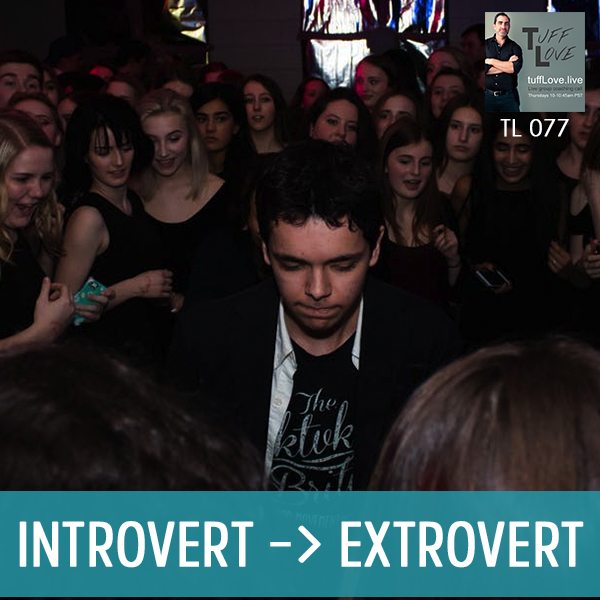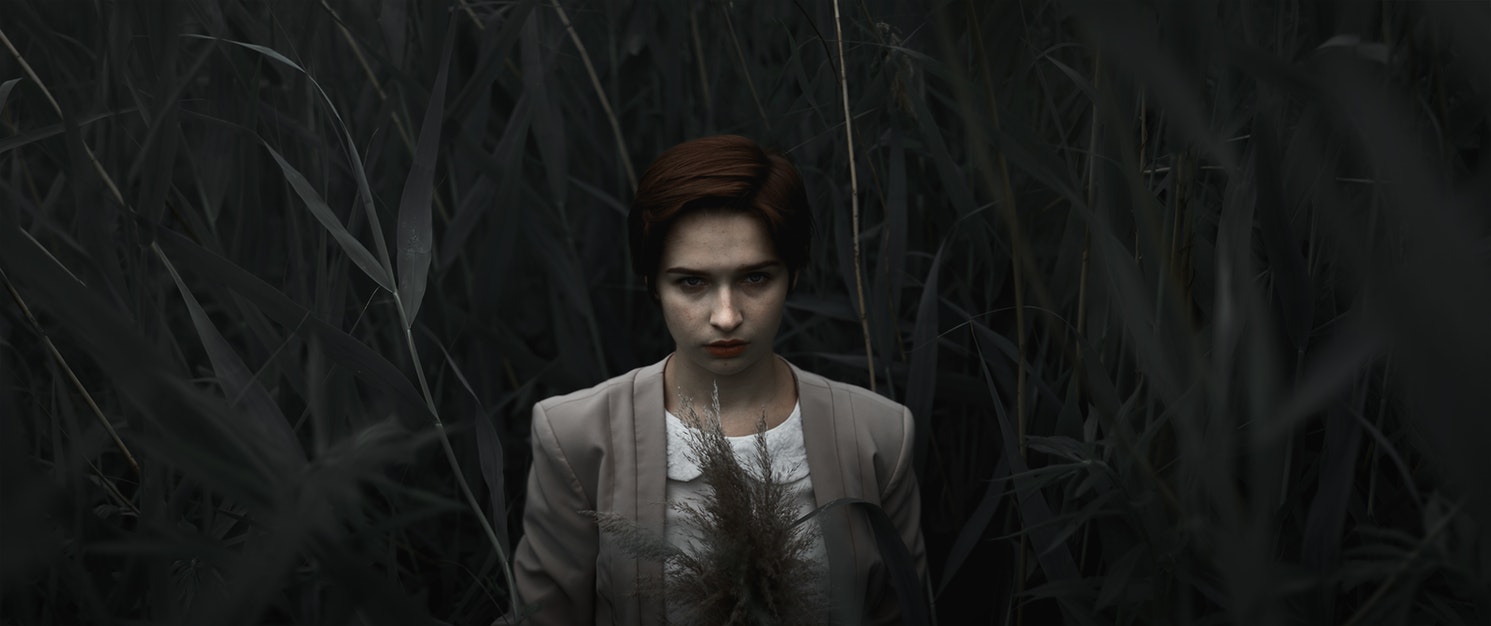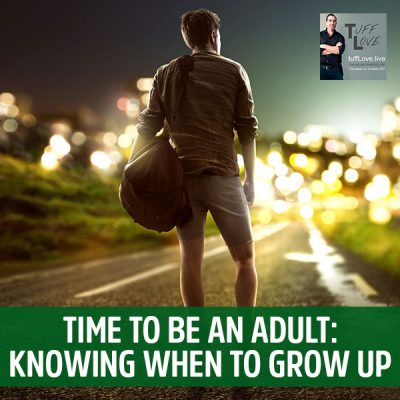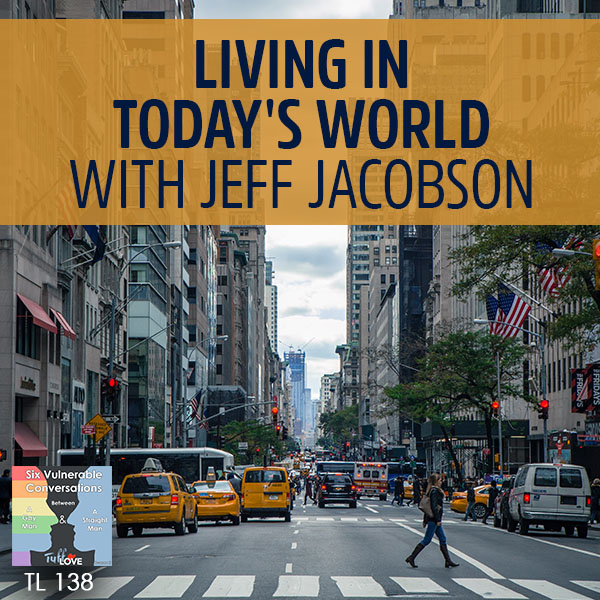
077: Introvert –> Extrovert
Jun 15, 2017
There is a place in us where we feel who we are and we see who we want to be. When we take a step towards making that a reality, we start to create experiences for ourselves that will let us go from introvert to extrovert. Even a shy and overweight kid can connect with people when he treats talking in front of a crowd as an extreme sport. It can be scary but you’re willing to try nonetheless. It’s not for of the thrill of the moment or the affirmation people will give you, but the genuine intention of getting yourself up there and telling people your message that makes you go to the next phase of who you are.
077: Introvert –> Extrovert
We’re talking about a topic that is near and dear to my heart, the concept of being an introvert and how I’ve identified as an introvert my entire life and learn the skill to be extroverted. Some of the things I’ve done and some of the things I’ve seen to migrate. Carl Jung talks about introversion and extroversion as a scale. There’s no extreme. If one person was one or the other, he’s in the insane asylum. What we talk about is how to migrate up and down the scale to feel more connected and get more of your goal. Elvis and Jill come and talk about the woman’s perspective of what happens during her cycle and how it affects her introversion and extroversion, which is something I’ve never thought about.
We have a fun topic here for this episode. It’s the topic of introversion-extroversion, the journey from point A to point B, how I went through my story, things I’ve found. I’m very excited to be here. It’s been a full-time in my life. I’ve got the first draft of the book proposal in to the editor. I’m writing a book called The Unhidden Man. It’s about how to be a man living in today’s society because it’s confusing, messed up, skew-y at the same time. Let’s talk about introversion versus extroversion, what’s going on, what’s happening, some definitions I’ve been finding, and some interesting thoughts around it.
The first thing is I want to talk about was that I was a shy kid. Here I am on the radio, doing a live show out into the world on Zoom, publishing it, and doing some Facebook Live. I do consider myself someone who is shy when it comes down to it. I don’t know if a lot of people know that. People have seen me teach or watched me progress or watched me on the show, “You’re not shy,” but I truly am. I want to give some reality to all the people who think that they don’t know how to handle being in the world in their own shyness, and that you can do anything with what you perceive as a limitation. I was petrified to talk to people.
I was petrified to be in front of an audience. I’m still petrified. The time comes onto the show and I’m still thinking, “I can’t believe I have to do the show again,” because there’s a part of me that wants to hide and be behind the shadows. There’s still a part of me that knows that this is my purpose. For me to be in my purpose, I have to move from my shyness into being connected to the world. The only way it’s going to work is if I’m truly connected into the world. For those who feel like they can’t do it, you can. If I can do it, then you can do it. No more excuses.
I found this article in Huffington Post called 23 Signs That You’re Secretly an Introvert, which I thought was a great title. A woman named Carolyn Gregoire wrote it. Of the 23, here’s five or six of them. Number one, “You find small talk incredibly cumbersome.” I hate small talk. Small talk is the death of me. Without a purpose and without something that we’re creating, I find it very hard to relate to human beings. I find it very hard to be in relationship with people creating something magical together, and so small talk to me feels like a waste of time. It feels like pressure. What am I going to say next? This is different than flirting. Flirting is challenging on its own way about things, but small talk in parties is just challenging.

Introvert To Extrovert: Without a purpose and without something that we’re creating, I find it very hard to relate to human beings.
Number two, “You go to parties but not to meet people.” I go to a lot of parties, but I don’t go to meet people per se. It’s more to be in the party environment. Introverts go to parties to talk to friends and feel comfortable and look for comfortable situations, so we go to feel saner.
Number three, “You often feel alone in a crowd.” A lot of people will identify with that feeling of feeling alone in a crowd, when we are surrounded by people but there’s still this feeling that no one understands me, and no one connects to me and what am I going to do anyway. “Networking makes you feel like a phony.” I hate networking events. I hate going to these big conferences and talking to people. I find it easy to talk to people, and yet it’s hard to talk to people. Maybe this has something to do with the small talk as well. There’s this pressure and feeling, and I don’t feel authentically feel like myself there because it’s hard to be connected to it.
Here’s one that didn’t identify with me from her list. “Downtime doesn’t feel unproductive to you.” Downtime feels mostly unproductive to me, and I have trouble downtime, so this was a sign that I’m not a pure introvert because this is one that didn’t identify. The last one I do is, “giving a talk in front of 500 people is less stressful than having to mingle with those afterwards.” I knew that piece for sure. I did a couple of talks at Lightning in a Bottle. I did three. The largest one was the first one, but it must be 200 to 300 people on there. I felt petrified by the experience of being in front of a large group of people and then having to go talk to them afterwards. After the second one, I was down the stage and people came and talked to me. We talked about entrepreneurship. There was this line of people wanting to talk to me and I felt honored by that, but I also felt extremely uncomfortable.
How did I progress from this shy kid to doing a live talk at 47? What has been my path over the 47 years? Thinking about it and working on it, I realized there were some definitive things that I did to migrate from a purely introvert to extrovert. Carl Jung wrote that, “There’s no such thing as a pure introvert or extrovert because they would be in a lunatic asylum.” I didn’t verify that quote, but I thought that was funny. There’s no such thing. It’s a spectrum. He wrote and coined the term that there is a spectrum between introverted and extroverted, and you fall somewhere along the line. There’s someplace right in the middle where you fall. You can move from one thing to another, even if you feel totally introverted and totally shy, there are skills and things you can do to migrate into being more extroverted if that’s what you desire.
I was a shy kid. I was an overweight kid. I never felt comfortable in my body. Even though I had friends and connected, there were still this shyness that I felt constantly through my life. It played out in meeting girls or not meeting girls. It played out in getting invited to parties when I was younger. There was this stuck feeling. I felt the wallflower experience of sitting in the corner and not feeling comfortable with my own skin, not feeling my value, and not feeling that I was worthy of someone’s attention. I felt very shy inside my own experience of relating to other human beings. A few things helped. Playing football helped, being in sports and being part of a team and feeling connected to other people.
There’s different types of sports you do in high school. There’s the individual sports, which is the running and the archery. There’s things that are small and then there’s team sports. That taught me how to relate to other human beings. I was on the football team and I was on the lacrosse team. There’s a lot of negative parts about that as well, but the main thing I got out of it was how to be connected to other human beings. If you’re looking and struggling how to connect and being part of a group, it doesn’t have to be a sport per se. There’s so many clubs and so many you can do in high school to migrate from this isolated depressed feeling I had into being connected, and it has a lot to do with sports.
At eleventh grade, I decided to run for President of my class. We ran in eleventh grade and you start your term in twelfth grade. There were four or five other kids that ran. I was a little arrogant about it. I thought the kids weren’t cool, even though I didn’t think I was cool. I didn’t know how that played out, but I decided to run. The big part of the campaigning was it do a speech. I’ve never done a public speech in a public forum before in my entire life, and here I was in front of hundreds and hundreds of people with my speech. I borrowed a line from this guy Ross Perot. Ross Perot was running for President in the ’88 elections.
He came up and he said, “Who am I, and why am I here?” There was this thing that touched inside of me that was totally true. That’s how I felt and that’s how I started my speech. In that process, I felt connected to the audience. There was that one moment of being vulnerable and not knowing who I am and not knowing where I’m going that sparked this thing inside of me that kept me going and part of that show. Even though I lost the election, there was something about being vulnerable and real in being in front of an audience and being willing to say it. That built a foundation for me to be connected to it.
I also realized that I was good at public speaking, which surprised me. For someone who had trouble speaking in front of other people or with parties, there was something about putting myself out there. It was like the extreme sport of public speaking was talking to my high school class, not feeling confident myself but still be willing to be up there. People came up afterwards and said I had the most entertaining speech, but there was something about willing to take that chance to get to the next level that helped me feel successful.
I went to college in Los Angeles, it was an engineering school, and I got myself in mostly a co-dependent relationship. The feeling I felt as a freshman, being out in Los Angeles for the first time and dropping the weight and being free, once I got into the relationship, that introverted nature of both of us amplified each other. If you want to migrate from introvert to extrovert, be careful if you start to date another introvert. When you date an introvert, your introverted natures build on each other. Be careful when that happens to not fall prey. We didn’t socialize much, we were studying all the time, and we didn’t go out a lot. I missed a lot of the joyous parts of college, because I found someone to compliment my introverted nature, and in doing so stayed small in that degree and probably missed out on some good times. Graduate school helped me have some of those experiences but be careful that if you want to stop being an introvert, don’t date one and end up in that place.
There are skills and things you can do to migrate into being more extroverted if that’s what you desire. Click To TweetI went to graduate school in Philadelphia. I broke up with my girlfriend on route from college to grad school. I was in grad school and I was doing research. I didn’t have a lot of friends, and so I went back to an old standby, which was working in the restaurant business. The restaurant business was the life changer for me. If you want to make some recommendation to young people on their way up, the restaurant business taught me so many of my skills that I still use today. I am a huge component and fan. Every high school kid in America should spend some time, it should be part of the curriculum of graduating high school, is to go to work in the restaurant business, because you have to learn organization. You have to learn customer service skills. You also tend to treat people better once you’re a waiter. Every waiter knows ex-waiters, because they’re a little more patient and they tend to tip better. People in the restaurant business taught me a lot.
In the restaurant business I succeeded, and then I worked my way to being a bartender. Through some attrition and people leaving, all of a sudden. I was the Saturday night bartender in Philadelphia, Pennsylvania, a drinking town, at a high-end bar in Two Logan Square. I found myself realizing that the amount of money I would make in tips was directly corresponding to how entertaining I was and how extroverted I was. I was there to make money and have fun and meet women, but I was also there to develop my skills. Being a Saturday night bartender brought out the best part of me. The part you see today, on the mic talking, was a lot to do with my skill set from learning to be a bartender.
I would push myself hard to be out and expressive inside the bar and I learned the skills. I would be on stage from 5 PM until 2:00 AM, nonstop. That’s nine hours of not going to the bathroom and drinking a lot of coffee at the same time, nonstop at that bar. I was out, I could flirt with women, I could talk to anyone, I could engage, and I could do small talk, and then flip around the circumstance when I was on the other side of the bar. When I was a patron at a different bar, I was right back to being that shy kid. I realized there was something in being on the job and being in service and being part of the crew that had me feel comfortable compared to when I wasn’t.
I saw the transition of how good I felt being in a position of power or a position of something compared to just being a patron and how awful it felt and how challenging it was. I started to take the best part of the service position and bring that into my life and my daily routine. In order to be connected to other human beings, I could be in the place of service all the time. My work at OneTaste, being a teacher, a coach, and a lecturer, taught me how to speak further and having to entertain classes and move classes and pay attention.
The thing I learned was that feeling of being connected, that feeling of truly being out and paying attention was the thing that was missing. Without that, I wasn’t as clear. When you go out in the world and you want to feel more connected to human beings, what you can do is take your attention off of yourself, find your place in a place of service, and then fully dedicate yourself to that. From that place of being out and paying attention to other human beings, from there I found a way to get out of my introverted nature, because when you have your attention out and when you’re noticing someone else, it’s very hard to be afraid of your own fears and your own thoughts. The thing that I truly learned in this experience was I could come out and be true.
The last thing I want to talk about was an experience of how introverts tend to use extroverts. I did some more reading about this, and one personal experience I had was that I was married to a wonderful woman named Carol. I found another introvert to be in relationship before I was extroverted, and even though I was coming out, I was still in relationship to that. When we go drinking, Carol’s extrovert would come out really big. I realized that I would look to her in these situations and ride the coattails of her extroverted nature. I would be shy, and she would be extroverted and then I could sit next to her or being near her or laugh with her and then be part of that bigger expression of what’s happening.

Introvert To Extrovert: When you date an introvert, your introverted natures build on each other. Be careful when that happens to not fall prey.
One time I went to a meeting in San Francisco. There was a guy that was doing a talk and doing a share. He was so expressive in his nature. He was slamming a book on a table and I was captured by it. I was intrigued by it. I realized that I wanted to be part of that. I realized that I would lean on extroverts to allow myself to come out. There was something about the permission I felt of being in that company that allowed me to bring out. I still feel introverted and extroverted every day. There’s different expressions of it.
The biggest piece is when I allow myself to feel my own value and when I allow myself to feel fully who I am and what I have to offer into the world, that’s where the introvert shifts into the extrovert. It has been this incredible experience of allowing to go from that scale that Carl Jung talked about, from the introverted to the extroverted, and allow me to move from point A to point B. If you want to find that place, find the places where you can feel who you are, what you want, and your experience, and that’s what’s going to bring the next phase of who you are out into the world.
Live Coaching
Hi, Jill.
I’ve got something that I wanted to add when you’re talking about the spectrum between the extrovert and introvert. As a woman, I’ve been where how I move across the spectrum at different points in the cycle. The moment I feel that I’m in the pre-menstrual week. I, all of a sudden have this term where I say, “The shutters have come down.” They’ll say to me, “I can see it.” It’s where I retreat a little bit from the outside world and go into my own little world. It can be strange for Elvis, because he’s still keen to connect. It’s still something that we’re trying to work out where it can be a little bit jarring. He can come and acknowledge the fact that he can see that I’ve gone and left the building a little bit. It’s part of the natural cycle of things. This would be around ovulation. You’re more like an extrovert and your energy level is up. You gradually come into this place where you go into your own little cocoon.
We did a show on that where we learned the different cycles, which I thought was a really great point. As a man, I have a steady system, so I’m not used to what you’re talking about. I see what you’re saying is that there’s certain parts in woman’s biology that allows her to come out and there’s a natural push to lower energy and entrap that.
It’s a really useful tool for yourself, as a woman, to realize that that’s what’s happening and book appointments around that. Also, I would assume as a partner of a woman that you can be, “What’s going on?”
That’s really valuable because people judge themselves. Women judge themselves that they’re not at their peak when their biology is telling them, “No, it’s time to lay fallow. It’s time to relax. It’s time to take care of the body.” Other times is time to expand.
What I found as well is that if you allow yourself to go with it, the peaks and troughs are more enjoyable. Instead of trying to plow through the low energy times in the cycle, if you go with it and rest, the energy levels in the phase where they’re meant to be high are even higher.
When I allow myself to feel my own value and to feel fully who I am, that’s where the introvert shifts into the extrovert. Click To TweetDo you have any shame or judgment about yourself when you want to be the opposite?
I do get more when I feel like I want to retreat. I get less guilt when the period’s there and you can visibly see it. It’s like, “I’m officially allowed to rest.” But a few days before, when it’s more of an emotional thing, I do feel guilty that I’m less available.
A lot of times, my partner will come and say, “I figured out why I’ve been this way. I just got my period.” It’s interesting to me, for all genders, there’s not more attention paid to the cycle. Doing that show, I got educated. I know a few women who talked to me that said they were educated. There’s some shame in this bodily function, which is the most natural, important part of a woman’s system that we don’t confront it more fully, so we could be better friends to ourselves and to our partners.
It’s this idea that you got to plough on in the sense of competing with men, we could do what men could do. There is this undulation which if you go with it, it’s gold in there.
I didn’t even think about that piece. I’m a man, and to me, my system is stable. Up and down and different moods, and different things. For a woman, I never got the full impact that would have on the introverted versus extroverted cycle.
It does affect your ability to speak to people, whether you want to speak to people.
Human beings are so in sync, we have limbic systems, we have ways that we are totally connected to our partner. I’m wondering if the man’s cycle is somehow affected by the woman’s cycle. Elvis, do you feel like you go full tilt all the time, but you feel affected by her cycle? Do you feel more introverted or extroverted at any point?
For the past four years, we’ve been getting really down into where Jill is through her cycle. It’s been a thing of real awareness all the time. I’m so connected to her cycle that it’s almost my cycle. I’m pretty full tilt all the time, but as the shutters came down, it triggered something else inside of me that I hadn’t noticed before. It brought up stuff that was to do with stuff that I could feel from my childhood of feeling ignored or not needed. Because I placed myself in that place of service, my purpose is around in service for the people. That works good as husband. That’s handy. I’ve got something to do all the time. Sometimes, when that feels like that that’s brought up from underneath me, I feel like I’m thinned out.
Thanks so much for adding an important point. Thanks for always being connected with us.
Thanks, Rob.
Resources mentioned:
Podcast: Play in new window | Download







